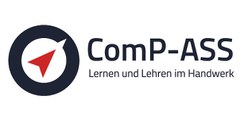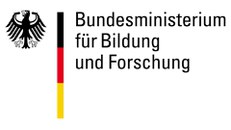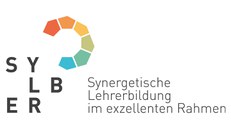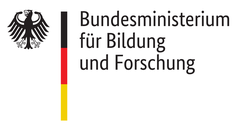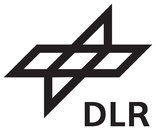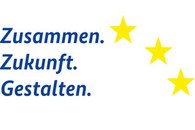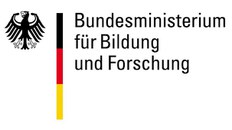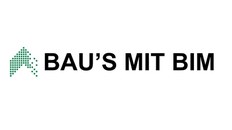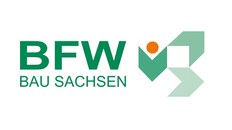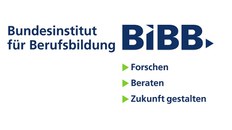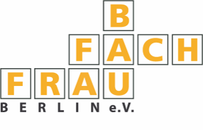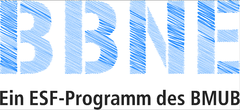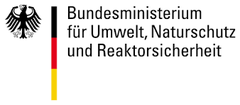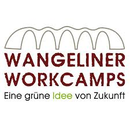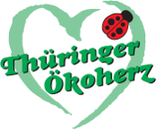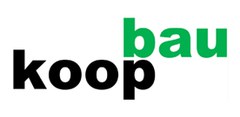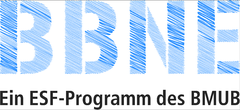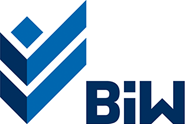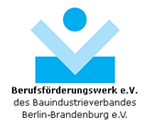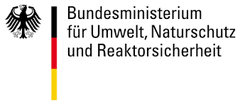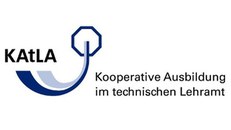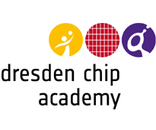Abgeschlossene Forschungsprojekte
ESF-Nachwuchsforschungsgruppe "FioKo" – Frauenförderung durch individuelle und organisationale Kompetenzen in Bildung und Beruf (MINT)
Projektlaufzeit: 01.01.2023 – 31.12.2024
Obgleich Frauenförderung von Politik und Gesellschaft regelmäßig gefordert wird, sind Frauen in Wissenschaft und weiten Teilen der Wirtschaft weiterhin unterrepräsentiert.
Mit Blick auf die Gründe für die Unterrepräsentation von Frauen konnten in der Vergangenheit bereits wertvolle Erkenntnisse generiert werden. Dennoch ist unser Wissen mit Blick auf die Wirkung praktischer Maßnahmen zur Förderung von Frauen noch sehr begrenzt. Eine umfängliche Betrachtung der Spanne von Schulbildung bis hin zu Berufen im MINT-Bereich in Sachsen ist deshalb notwendig.
Um das zu erreichen, arbeiten in diesem Projekt nicht nur zwei Universitäten (TUD, TUBAF) und zwei Hochschulen für angewandte Wissenschaften (Hochschule Mittweida, Hochschule Zittau/Görlitz) zusammen, sondern es sind darüber hinaus Kooperationen mit zahlreichen weiteren Organisationen geplant, unter anderem Schulen und Berufsschulen, Unternehmen und Startups im MINT-Sektor sowie Mentoring- und Coaching-Netzwerke.
Die Nachwuchsforschungsgruppe setzt sich zusammen aus Absolventinnen unterschiedlicher Disziplinen wie Wirtschaft, Psychologie, Pädagogik und Sozialwissenschaften. Sie bringen mehrheitlich die Erfahrung und das fachliche Wissen resultierend aus der vorherigen Zusammenarbeit in der Nachwuchsforschungsgruppe GAP - Genderanteile in Hochschulprojekten (Laufzeit: 2020-2022) mit.
ComP-ASS – Computergestütztes Lernen und Lehren im Handwerk mit interaktiven Assistenzsystemen
Projektlaufzeit: 01.09.2021 – 31.08.2024
Ausgangslage
Der Ausbau digitaler Lehr-Lern-Angebote ist ein Ansatz dem sich stetig wandelnden Bildungsbedarf in gewerblich-technischen Berufsfeldern zu begegnen. Entwicklung und Einsatz digitaler Lehr-Lern-Setting sind auch an Herausforderungen geknüpft.
Das Projekt ComP-ASS widmet sich der Qualitätssteigerung von Lehr-Lern-Angeboten für die Weiterbildung im Handwerk unter Einsatz digitaler, interaktiver und tutorieller Assistenzsysteme, wobei auf die Unterstützung berufsfeldspezifischer Bildungsbedarfe sowie auf die Ermöglichung individueller Lernpfade gesetzt wird.
Ziele
Das Projekt verfolgt drei Zielstellungen:
(1) Ein bereits bestehender „CNC-Lernplatz“ zur Vermittlung von CNC Kompetenzen für das Holz-Handwerk im Rahmen eines digitalen Weiterbildungsangebotes wird weiterentwickelt. Besonderer Fokus wird dabei auf den Praxisbezug sowie die zielgruppengerechte Gestaltung des Lernkonzeptes gerichtet. Weiter sollen innovativen Formate wie Simulationen, VR/AR- oder Gamification-Elemente eingebunden werden.
(2) Das zweite Ziel verfolgt die Entwicklung eines tutoriellen Lotsensystems, welches die Lernenden auf dem „CNC-Lernplatz“ anleitet und Hilfestellungen gibt. Das Lotsensystem unterbreitet den Nutzer:innen auf Basis der zielgerichteten Auswertung von Nutzungsdaten Vorschläge für einen Lernpfad. Dadurch werden individuelle Lernstrategien unterstützt und adaptives Lernen im digitalen Lehr-Lern-Raum ermöglicht.
(3) Ziel 3 fokussiert auf die Unterstützung der Mitarbeiter:innen von Bildungsanbietern oder Ausbilder:innen im Handwerk, welche nicht oder nur wenig didaktisch geschult sind, bei der Gestaltung zielgruppenadäquater, digitaler Lehr-Lern-Angeboten. Hierfür wird ein Interaktives Didaktisches Assistenzsystem (IDA) entwickelt, das die Bildungsakteure anleitet, alle Analyseschritte und notwendigen Entscheidungen im Kontext der Entwicklung von Lehr-Lern-Konzepten zu vollziehen. Auf Grundlage der Eingaben der Bildungsakteure werden auch methodische Empfehlungen oder Best-Practice-Beispiele bereitgestellt.
Weitere Informationen
Am Lehrstuhl wird das Arbeitspaket 3: Entwicklung und Erprobung des Interaktiven Didaktischen Assistenzsystems IDA verantwortet und damit vorrangig das dritte Ziel fokussiert.
Digitales Arbeiten und Lernen in der Baumaschinenbedienung (DALiB)
Projektlaufzeit: 01.09.2020 bis 30.06.2023
Auftragsforschung
Der Forschungsauftrag wird administrativ durch die GWT-TUD GmbH verantwortet. Die Professur war beauftragt mit der wissenschaftlichen Begleitung der Entwicklung und Durchführung von Analysen zu digitalen Anforderungen an die baumaschinentechnische Ausbildung sowie fachliche und didaktisch-methodische Unterstützung bei der Erstellung von Lernbausteinen. Diese Dienstleistung wurde nicht gefördert.
Projekt
Mit dem Projekt „Digitales Arbeiten und Lernen in der Baumaschinenbedienung“ (DALiB) integrieren drei überbetriebliche Ausbildungszentren neue digitale Technologien wie Simulationen und VR-/AR-Anwendungen in die Lehr- und Lernprozesse der überbetrieblichen Ausbildung (ÜBA). Ziel ist es, die Ausbildung in der Baumaschinenbedienung berufsübergreifend mit digitaler Technik zu modernisieren. Dazu entwickeln die Verbundpartner neue digitale Lernbausteine für die berufliche Bildungspraxis, mit deren Hilfe die Einführung digitalisierter Baumaschinen und -geräte in kleine und mittlere Unternehmen (KMU) ermöglicht werden soll. Neben bisherigen Ausbildungsinhalten, die vor allem zeit- und ortsunabhängig verfügbar sein sollen, liegt ein besonderer Fokus auf kompetenzorientiertem Lernen. Besonders Medien- und Selbstlernkompetenzen werden hierbei angestrebt.
Das Projekt DALiB wird gefördert im Sonderprogramm ÜBS-Digitalisierung aus Mitteln des Bundesministeriums für Bildung und Forschung (BMBF). Das Sonderprogramm wird durchgeführt vom Bundesinstitut für Berufsbildung (BIBB).
Projektwebseite
BIM-basierte Bauausbildung (B³AUS)
Projektlaufzeit: 01.09.2020 bis 30.06.2023
Auftragsforschung
Der Forschungsauftrag wird administrativ durch die GWT-TUD GmbH verantwortet. Die Professur war beauftragt mit der Analyse und Beratung bezüglich der Methodik und Didaktik im Rahmen der Entwicklung und Einführung handlungsorientierter BIM-basierter Arbeitsaufgaben für die überbetriebliche Berufsausbildung der 19 Bauhauptberufe. Diese Dienstleistung wurde nicht gefördert.
Projekt
Die Digitalisierung beeinflusst das Bauwesen und die Vorgänge auf den Baustellen in hohem Maße. Insbesondere digitale Bauwerksinformationsmodelle sowie die darin vernetzten digitalen Geräte verändern den Informationsfluss zwischen den am Bau Beteiligten: Die Facharbeiter/-innen nutzen die im dreidimensionalen Gebäude hinterlegten Informationen, um ihre Tätigkeiten fachgerecht auszuführen und zu dokumentieren. Veränderungen in der Bauplanung und deren Auswirkungen auf andere Prozesse werden so unmittelbar für alle Beteiligten sichtbar. Diese kooperative Arbeitsmethodik wird Building Information Modeling (BIM) genannt und setzt sich in der Baupraxis immer weiter durch. Sie anzuwenden und dabei u. a. Informationen aus digitalen Gebäudemodellen herauszufiltern wird eine Kompetenz sein, die zukünftige Fachkräfte bereits in ihrer Ausbildung erwerben. Für die überbetriebliche Ausbildung müssen daher dementsprechende Ausbildungskonzepte und Qualifizierungsangebote für das Ausbildungspersonal bereitgestellt werden. Hier setzt das Projekt „B³AUS“, als Verbund aus sechs Baubildungszentren, an.
Das Projekt B³AUS wird gefördert im Sonderprogramm ÜBS-Digitalisierung aus Mitteln des Bundesministeriums für Bildung und Forschung (BMBF). Das Sonderprogramm wird durchgeführt vom Bundesinstitut für Berufsbildung (BIBB).
Projektwebseite
Komplexe Lehr-Lern-Arrangements als gemeinsame Aufgabe von Fachwissenschaft, Fachdidaktik und Bildungswissenschaft (TUD-Sylber-BBS TP 3)
Projektlaufzeit: 01.03.2020 bis 31.12.2023
Ausgangslage
Vor allem in den gewerblich-technischen Fachrichtungen des Lehramts an berufsbildenden Schulen müssen sich die Studierenden im Grundstudium mit abstrakten technischen und naturwissenschaftlichen Zusammenhängen auseinandersetzen, welche sie häufig vor Herausforderungen stellen. Die zum Teil fehlende Kohärenz bei der Nutzung und dem Aufbau von Fachwissen innerhalb des Grundstudiums sowie dessen Bezug auf das spätere berufliche Handeln ist in vielen Fällen die Ursache der hohen Abbruchquoten in den ersten Semestern. Eine mögliche Interventionsmaßnahme ist es, den Zusammenhang zwischen den abstrakten fachwissenschaftlichen Inhalten des Studiums und den Aufgaben des späteren Berufs herzustellen.
Ziele
Die im Rahmen von TUD-Sylber bereits entwickelten Ansätze zur Kooperation von Fachwissenschaft, Fachdidaktik und Bildungswissenschaft werden durch die gemeinsame Entwicklung von KLLA ergänzt und auf die spezifischen Bedarfe im Lehramt an berufsbildenden Schulen bezogen.
Weitere Informationen
Das Maßnahmenpaket „Synergetische Lehrerbildung für das Lehramt an berufsbildenden Schulen (TUD-Sylber BBS)“ wird im Rahmen der gemeinsamen „Qualitätsoffensive Lehrerbildung“ von Bund und Ländern aus den Mitteln des Bundesministeriums für Bildung und Forschung gefördert. Weitere Informationen zu den Teilprojekten finden Sie zukünftig hier: SylberBBS
Umgang mit Heterogenität als Aufgabe aller Phasen der Lehrerbildung (TUD-Sylber2 TP 5)
Projektlaufzeit: 01.07.2019 bis 30.06.2023
Ausgangslage
Im Maßnahmenpaket TUD-Sylber in der ersten Förderphase (2016-2019) befassten sich mehrere Einzelvorhaben mit der Rekonstruktion von Einstellungen, Bedarfen, Handlungsstrategien sowie handlungsleitende Orientierungen von (angehenden) Lehrkräften verschiedener Schulformen bezüglich des Umgangs mit schulischer Heterogenität. Auf der Grundlage dieser empirischen Forschungen wurden Lehrangebote für Studierende konzipiert und pilotiert, die für verschiedene Aspekte von Heterogenität und Inklusion sensibilisieren und auf den Umgang mit schulischer Heterogenität vorbereiten. Die Reichweite dieser Einzelvorhaben umfasste dabei zwar mehrere Fächer und Schulformen, konnte jedoch die gesamte Breite an Lehramtsstudiengängen noch nicht abdecken. Um künftig alle Lehramtsstudierenden sowie bereits berufstätige Lehrerinnen und Lehrer für die Themen „Heterogenität und Inklusion im Kontext schulischer Bildung“ zu erreichen, soll ein schulart-, fächer- und phasenübergreifenden Angebot etabliert werden.
Zentrale Ziele
- Ausweitung und Implementierung der entwickelten Konzepte in der Breite der Lehramtsausbildung (schulart- und fächerübergreifend)
- Stärkung der Kohärenz der Ausbildung zum Umgang mit Heterogenität über die verschiedenen Phasen der Lehrerbildung hinweg (Kooperation mit Akteurinnen und Akteuren der zweiten und dritten Ausbildungsphase)
- Verstetigung der entwickelten Ausbildungskonzepte in allen Phasen der Lehrerbildung mittels Multiplikatoreffekt
Maßnahmen
Zur Verstetigung der bereits pilotierten Ausbildungskonzepte bedarf es einer Sammlung didaktischer sowie methodischer Materialien, mit denen sich Akteurinnen und Akteure der Lehrerbildung im Themenfeld Heterogenität und Inklusion weiterbilden können und einzelne Elemente inklusiver Bildung gezielt in ihre eigene Lehre integrieren können. Geplant ist eine schulart-, fächer- und phasenübergreifend einsetzbare Sammlung („Koffer“), die neben Methoden und theoretischem Input zu den Themen Heterogenität und Inklusion auch multimediale Tools, wie beispielsweise schriftliche, ikonische oder audiovisuelle Fallvignetten enthält. Diese können als Diskussions- und Selbstreflexionsanlässe in Lehrveranstaltungen integriert werden. Der Koffer soll schulart-, fach- und phasenübergreifende Materialien enthalten, aber auch Materialien, die spezifisch auf einzelne Lehrämter oder Fächer zugeschnitten sind: Dies soll eine breite Anwendbarkeit des Koffers ermöglichen.
In diesem Kontext nimmt insbesondere die Kooperation mit Akteurinnen und Akteuren der zweiten Phase der Lehrerbildung eine bedeutsame Rolle ein. Zu Projektbeginn werden daher Bedarfe bezüglich der Etablierung der Themen Heterogenität und Inklusion in ihre Lehre u. a. in einer Befragung erhoben. Daran anschließend werden bedarfsgerechte Lehrkonzepte für Lehrende sowie Mentorinnen und Mentoren der zweiten und dritten Phase entwickelt und partizipativ erprobt.
Weitere Informationen
Das Maßnahmenpaket „TUD-Sylber2 – Synergetische Lehrerbildung im exzellenten Rahmen“ wird im Rahmen der gemeinsamen „Qualitätsoffensive Lehrerbildung“ von Bund und Ländern aus Mitteln des Bundesministeriums für Bildung und Forschung gefördert.
Weitere Informationen zu den Teilprojekten finden Sie hier: ZLSB/Forschung und Projekte
Digitales bauberufliches Arbeiten und Lernen (DigiBAU)
Projektlaufzeit: 01.03.2018 bis 28.02.2022
Das Projekt
Mit dem Vorhaben „DigiBAU“ wird das Ziel verfolgt, die Kooperationsbeziehungen, den Austausch und den Transfer mit Blick auf die Digitalisierung bauberuflichen Arbeitens und Lernens im Kompetenznetzwerk Bau und Energie e.V. [1] zu verstetigen, zu vertiefen sowie darüber hinaus zu innovieren. Aufbauend auf den bereits bestehenden Strukturen des Kompetenznetzwerks Bau und Energie e.V. werden aufeinander abgestimmte Maßnahmen zu den Themenfeldern „Digitales Lernen“ und „Qualifizierung für die digitale Arbeitswelt“ entwickelt, systematisiert und aufeinander bezogen.
Teilprojekt
Der Professur für Bautechnik, Holztechnik sowie Farbtechnik und Raumgestaltung/Berufliche Didaktik obliegt im Projekt die Aufgabe der prozess- und ergebnisbezogenen Evaluation der komplexen Netzwerkarbeit. Hierzu wird insbesondere der Prozess der Netzwerkgestaltung begleitet, in seinen Merkmalen und Effekten analysiert und in Kooperation mit den Netzwerkpartnern optimiert.
Für die Bewertung der evaluierten Sachverhalte werden die Evaluationsinstrumentarien im Vorfeld entwickelt. Die Aussagekraft der Instrumentarien muss dabei kritisch reflektiert werden. Vordergründig wird die Innovationsfähigkeit des Netzwerkes mittels jener Analysen und einer ständigen Rückkopplung hinsichtlich weiterer Gestaltungsoptionen innerhalb der „Community of Practice“ sichergestellt. Angestrebt werden vorrangig Erkenntnisgewinne zu den Wechselwirkungen zwischen Netzwerkentwicklung (inhaltlicher Austausch), didaktischer Gestaltung der digitalen Medien und deren Einsatz im beruflichen Lernen und Arbeiten.
[1] Das Kompetenznetzwerk Bau und Energie e. V. ist ein 2014 erfolgter Zusammenschluss von bundesweit und zum Teil international agierenden Kompetenzzentren im Baubereich. Diese sind aus bauberuflich-überbetrieblichen Ausbildungsstätten hervorgegangen und nach Richtlinien der Bundesregierung anerkannt. Es handelt sich um nicht-kommerzielle, gemeinnützige Einrichtungen, die im staatlichen Bildungsauftrag sowie insbesondere in der beruflichen Erstausbildung und in der ordnungspolitisch geregelten Weiterbildung tätig sind.
Schule inklusiv gestalten (Sing) – Entwicklung fachdidaktischer Konzepte und organisatorischer Strukturen einer inklusiven Schule
Projektlaufzeit: 01.01.2018 bis 31.12.2020
Das Projekt
Im Projekt SING sollen fach- bzw. berufsdidaktische Perspektiven mit sonderpädagogischen Perspektiven verknüpft werden, mit dem Ziel Kompetenzen für die Entwicklung eines inklusiven Fachunterrichts bei Lehramtsstudierenden aufzubauen. Um jeden einzelnen Schüler/jede einzelne Schülerin in seiner/ihrer Entwicklung möglichst wirksam unterstützen zu können, wird ein Instrument erarbeitet, das eine fachspezifische Diagnostik der Lernstände und die Ausgangsbedingungen der Lernenden mit der fach- bzw. berufsdidaktischen Analyse der Aneignungsgegenstände verbindet. Dadurch können unterschiedliche Lernwege skizziert werden, die sich für ganz konkrete Schüler/innen anbieten. In einer weiteren Projektphase konzipieren Studierende, unterstützt von Wissenschaftlerinnen und Wissenschaftlern, inklusiven Fachunterricht in der Schulpraxis zusammen mit Lehrerinnen und Lehrern. Wie die Studierenden zusammen mit den Expertinnen und Experten an ihrer Seite diese Herausforderung bewältigen, wird untersucht. Die Ergebnisse fließen in die Weiterentwicklung der Lehrerinnen- und Lehrerbildung für den Kompetenzaufbau von inklusivem Unterricht an Hochschulen ein.
Darüber hinaus wird der IST-Stand und die Bedarfe der Schulen analysiert, um ein Instrument zur Prozessgestaltung inklusiver Schulen zu entwickeln. Die so konzipierten Leitfäden sollen zukünftig als Orientierungshilfe bei der Einführung des Prozessmanagements an inklusiven Schulen dienen.
Das Projekt ist ein Verbundprojekt zwischen der TU Dresden, dem Fraunhofer Zentrum für Internationales Management und Wissensökonomie (Leipzig) sowie der Bergischen Universität Wuppertal.
Kooperative Ausbildung im technischen Lehramt (KAtLA+)
Projektlaufzeit: 01.04.2017 bis 30.09.2020
Ausgangslage
Mit dem Modellversuch „Kooperative Ausbildung im technischen Lehramt“ (KAtLA) wurde von 2010-2015 unter der Leitung von Manuela Niethammer und Martin D. Hartmann ein innovativer, interdisziplinärer Studiengang entwickelt und erprobt: Künftige Lehrkräfte haben die Möglichkeit, während eines zwölfsemestrigen Studiengangs neben dem Staatsexamen auch einen Berufsabschluss in einer technischen Fachrichtung zu erreichen. Die berufspraktischen Elemente werden dabei so in den Studienablauf integriert, dass den Studierenden eine systematische Auseinandersetzung mit der Arbeitswelt im Hinblick auf die eigene Lehrtätigkeit ermöglicht wird. An dieses Projekt schließt KAtLA+ an.
Vor dem Hintergrund des Bedarfs an Lehrkräften im berufsbildenden Bereich für gewerblich-technische Fächer und den Ansprüchen, die mit einer Lehrtätigkeit in diesen Fachrichtungen verbunden sind, soll Studierenden an Fachhochschulen die Möglichkeit gegeben werden, zu einem FH-Bachelor-Abschluss in den Fachrichtungen ET/IT, MMT, BT oder LPT einen Lehramtsabschluss zu absolvieren.
Bei der Umsetzung des Projekts „Kooperative Ausbildung im technischen Lehramt“ (KAtLA+) liegt der Fokus auf drei Modellen. Im konsekutiven Modell wird die TU Dresden die Anerkennung von Studienleistung im Rahmen eines MINT-Bachelors und die Zulassung zum Studium des Höheren Lehramts an berufsbildenden Schulen ermöglichen. Im kooperativen Modell werden ingenieurpädagogische Anteile und spezielle Praktika bereits im MINT-Bachelor-Studiengang an der HTW Dresden implementiert, die einen nahtlosen Übergang an die TU Dresden ermöglichen sollen. Im Rahmen des integrierten Modells könnte zukünftig ein Studiengang entstehen, der von Anfang an die kooperative Ausbildung an beiden Hochschulen vorsieht. So können Studierende während des gesamten Studiums Lehrveranstaltungen an beiden Hochschulen besuchen.
Ziel des Projektes
Mit dem Projekt werden folgende Ziele verfolgt:
- Sicherung der Qualität der dualen Ausbildung in den technischen beruflichen Fachrichtungen
- Gewinnung neuer Zielgruppen für das Lehramt an Berufsbildenden Schulen – vor allem Abiturient*innen ohne vorherige Berufsausbildung sowie Studierende an Fachhochschulen (FH-Bachelor)
- Sicherung der Nachfrage für KAtLA bzw. für das Studium Lehramt an Berufsbildenden Schulen mit dem Ziel, den Lehrkräftenachwuchs für diese Schularten zu sichern
- Etablierung eines neuen Studienmodells FH-Bachelor Ingenieurpädagogik mit direkter Anschlussfähigkeit zum Lehramtsstudium BBS (Typ 5, KMK Kategorie), ggf. auch Etablierung eines integrierten Studiengangs FH/TU
Stärkung von Studierenden des beruflichen Lehramts im Umgang mit Heterogenität und Vielfalt (SYLBER EV 4.2)
Projektlaufzeit: 01.03.2016 bis 31.08.2019
Hintergrund des Projektes
Da momentan in keiner anderen Schulart wie im Bereich der berufsbildenden Schulen Lehrkräfte so stark heterogenen Gruppen von Schülerinnen und Schüler begegnen Schule (vgl. Besand 2014), werden hier Überforderungen und mangelnde Unterstützung angezeigt. Im Rahmen des TUD-SYLBER-Projektes wird im Einzelvorhaben 4.2. dieser bekundete Mangel und der Umgang mit ihm weiter erforscht.
Vorarbeit: Besand, A. (2014): Monitor politische Bildung in beruflichen Schulen. Schwalbach.
Ziel des Projektes
Das Ziel des an der Professur angesiedelten Teilvorhabens von TUD-SYLBER „Stärkung von Studierenden des beruflichen Lehramts im Umgang mit Heterogenität und Vielfalt“ ist die Integration der Themen Inklusion und Heterogenität in die erste Phase der Lehramtsausbildung für berufsbildende Schulen.
Demnach sollen Studierende in zu entwickelnden und erprobenden Ausbildungsmodulen auf diese Herausforderungen gezielter vorbereitet werden. Wenngleich im Projekt „Die Inklusion“ als gesamtgesellschaftlicher Transformationsprozess verstanden wird, der darauf abzielt für alle Menschen Teilhabe zu ermöglichen, so schafft das Vorhaben eine Basis für die zukünftige Gestaltung entsprechender Lehr- und Lernangebote.
Bau´s Mit BIM
Projektlaufzeit: 01.10.2016 bis 30.06.2019
Das Projekt
Das Projekt hat sich zum Ziel gesetzt, die Inhalte aus der Stufenausbildung auf Basis der „Verordnung über die Berufsausbildung in der Bauwirtschaft“ mit einem digitalen Bauwerksmodell, als Informationsquelle für die Ausführungsplanung und anschließende Realisierung im Werkstättenbetrieb, zu verknüpfen und für die Lernenden im Arbeitsweltkontext zu ordnen. Hier setzt „BAU'S MIT BIM“ am Beginn des Qualifizierungsweges der Baupraktiker*Innen an. Damit kann gleichzeitig eine niedrigschwellige Einführung und Verankerung von BIM in die grundständige Ausbildung der Bauberufe erreicht werden.
Am Ende des Projektes werden Fachausbilder*Innen des ÜAZ Dresden befähigt sein, ein Ausbildungsjahr mit Hilfe des BIM-Modells und des Betrachtungstools für das erste und zweite Lehrjahr vorzubereiten und im laufenden Ausbildungsjahr durch Nutzung digitaler Endgeräte (Tablets, Whiteboard, Workstation) die praktische Ausbildung digital und didaktisch begründet zu gestalten.
Teilprojekt
Der Professur für Bautechnik, Holztechnik sowie Farbtechnik und Raumgestaltung/Berufliche Didaktik obliegt die Analyse von Arbeitsprozessen sowie die Bestimmung des Qualifizierungsbedarfs unter der Berücksichtigung der Digitalisierung in sächsischen Bauunternehmen.
Wangeliner Workcamps – eine grüne Idee von Zukunft
Projektlaufzeit: 01.12.2015 bis 30.11.2018
Das Projekt
Das Projekt „Wangeliner Workcamps - Eine grüne Idee von Zukunft“ bietet in den Schulferien der Jahre 2016 – 2018 jeweils einwöchige Workcamps für Jugendliche und junge Menschen aus den neuen Bundesländern an. Diese finden vorwiegend auf dem Gelände des Wangeliner Gartens und der Europäischen Bildungsstätte für Lehmbau statt. Das Projekt zielt darauf ab, jungen Menschen vor der Berufswahl Perspektiven aufzeigen, um anschließend Möglichkeiten "grünen Lernens" für sie zu eröffnen. Die Workcamps sind als informelle und außerschulische Formate konzipiert und sollen den Teilnehmenden die Möglichkeit bieten, niedrigschwellig über einen begrenzten Zeitraum hinweg eine breite Palette möglicher beruflicher Richtungen auszuprobieren.
Zu diesem Zweck werden mindestens 240 Jugendliche und junge Erwachsene zwischen 16 und 25 Jahren an den Wangeliner Workcamps teilnehmen.
Teilprojekt
Der Professur für Bautechnik, Holztechnik sowie Farbtechnik und Raumgestaltung/Berufliche Didaktik obliegen Beratungs- und Unterstützungsleistungen zur Entwicklung des Berufspädagogischen Konzepts der Wangeliner Workcamps. Vor diesem Hintergrund werden inhaltsbezogene Aspekte (Nachhaltigkeit, Berufsbezug, Aufbau von Wissensstrukturen usw.) ebenso mitgedacht wie adressatenbezogene (Heterogenität) oder institutionelle Voraussetzungen.
Kooperativ Handeln - gewerkeübergreifend und nachhaltig Bauen (KoopBau)
Projektlaufzeit: 15.11.2015 bis 30.09.2018
Das Projekt
Im Projekt „Kooperativ Handeln – gewerkeübergreifend und nachhaltig Bauen (Koopbau)“ werden für Ausbildungspersonal und Auszubildende Lehrgangsmodule nach dem ganzheitlichen Qualifizierungsansatz „Haus als System“ entwickelt und erprobt. Koopbau greift dabei die Schnittstellenproblematik bereits in der Ausbildung der Fachkräfte am Bau auf. Die Lehrgangsangebote sind gewerke- und gewerbeübergreifend ausgerichtet und erfordern bzw. fördern die Zusammenarbeit der Bau-Beteiligten. Die in Aus- und Weiterbildung einsetzbaren Module sollen dazu beitragen, einen nachhaltig effizienten Ressourceneinsatz zu bewirken und die Qualität von Bauprozessen bei Neubau und Sanierung zu verbessern. Zu diesem Zweck werden mindestens 170 Jugendliche und junge Erwachsene unter 25 Jahren sowie 340 Ausbilderinnen und Ausbilder zu Nachhaltigkeitsthemen qualifiziert.
Die Projektpartner
Die Projektleitung liegt beim Überbetrieblichen Ausbildungszentrum (ÜAZ) Dresden des BFW Bau Sachsen e.V., das die fachlichen Schwerpunkte Ressourcenschonung und Wohnklima bearbeitet.
Das Berufsförderungswerk e.V. des Bauindustrieverbandes Berlin-Brandenburg e.V. ist federführend zuständig für bauphysikalische und baurechtliche Fragen und für die Eigenschaften der Gebäudehülle.
Das Berufsbildungszentrum der Handwerkskammer Dresden betreut die Themenfelder energieeffiziente Gebäudetechnik, Brandschutz und Baugewerkekoordination.
Das Aus- und Fortbildungszentrum Walldorf des Bildungswerk BAU Thüringen-Hessen e.V. ist verantwortlich für die Themenbereiche eines effizienten, umweltgerechten und gefährdungsarmen Einsatz von Baumaschinen und Geräten.
Die Technische Universität Dresden ist mit der Professur für Bautechnik, Holztechnik, Farbtechnik und Raumgestaltung/ Berufliche Didaktik am Projekt beteiligt und unterstützt die Partner aus der Berufsbildungspraxis in konzeptionellen und methodischen Fragen der Lehrgangsgestaltung.
Des Weiteren wird ein Kriterienkatalog erarbeitet der zur Einhaltung von Querschnittszielen in den Bereichen Gleichberechtigung, Antidiskriminierung und Aspekten der Nachhaltigkeit bei der Erstellung der Module leiten soll. Auf Grundlage des Kriterienkataloges erfolgt eine Evaluation der Module in der Erprobungsphase und soll den modulverantwortlichen Partnern bei der Verbesserung helfen.
Die Module für Lehr- und Ausbildungspersonal
Im ersten Schritt richten sich die Qualifizierungsangebote an haupt- und nebenamtliches Lehr- und Ausbildungspersonal verschiedener Gewerke aus Betrieben und überbetrieblichen Berufsbildungsstätten. Sie werden als Multiplikatoren den gewerkeübergreifenden Systemansatz erleben und dazu unter anderem an 1:1 Modellen die zwölf Praxis-Schnittstellen-Module ausprobieren, analysieren und bewerten. Dieser Erfahrungsaustausch mündet in einem 13. Modul in der Reflexion und ggf. Weiterentwicklung der methodischen Gestaltung. Das Lehr- und Ausbildungspersonal wir dadurch befähigt die Praxis-Schnittstellen-Module bedarfsgerecht weiterzuentwickeln.
Die Module für Auszubildende
Die entwickelten Praxis-Schnittstellen-Module dienen der Ergänzung der Berufsausbildung. In ihnen werden arbeitsrelevante Situationen aufbereitet an denen Auszubildende mittels 1:1 Modellen und technischen Experimenten die Bedeutung von gewerkeübergreifendem Handeln für die nachhaltige Facharbeit erleben. D.h., reale Arbeitssituationen werden als Anlass für Lernen genutzt.
SFK – Sicherung des Fachkräftebedarfs in Kleinst- und Kleinunternehmen im Landkreis Sächsische Schweiz-Osterzgebirge
Die sächsische Wirtschaft wächst. Unternehmen expandieren und suchen neue Mitarbeiter. Ähnlich wie in anderen Bundesländern ist die Fachkräftesituation in Sachsen angespannt. Verschärft wird die Lage durch Passungsprobleme (Mismatches). Während kleinste, kleine und mittlere Unternehmen offene Stellen haben, finden viele Schulabsolventinnen und
-absolventen keinen Ausbildungsplatz.
Vor diesem Hintergrund untersuchte die TU Dresden in Kooperation mit der IHK Dresden und HWK Dresden wie Kleinst-, Klein-, und mittlere Unternehmen Fachkräfte gewinnen und inwiefern sie vorhandene Beratungs- und Informationsangebote nutzen. Außerdem wurden ihre Bedarfe an solchen Angeboten sowie weiteren Unterstützungsmöglichkeiten oder Auslagerung ermittelt.
Parallel dazu wurden Schulabsolventinnen und -absolventen online befragt, um deren Sichtweisen auf die Ausbildungsplatzsuche zu erheben und Einflussfaktoren bei der Berufswahl abzuzeichnen. Es kann ein exemplarischer Einblick für neunte Klassen an Oberschulen im Landkreis Sächsische Schweiz-Osterzgebirge gegeben werden.
KAtLA - Kooperative Ausbildung im technischen Lehramt
Projektlaufzeit: 01.09.2010 bis 31.08.2015
Das Modellprojekt KAtLA intendierte die Integration beruflicher Ausbildungsinhalte in das Lehramtsstudium für technische Berufe. Damit wurden speziell Studieninteressenten ohne Berufsabschluss angesprochen, die sich ab dem Wintersemester 2011 in den neuen Studiengang für das höhere Lehramt an Berufsbildenden Schulen mit kooperativer Ausbildung immatrikulieren konnten. Parallel zum Lehramtsstudium führte dieses zu den Berufsabschlüssen Chemielaborant/-in, Elektrotechniker/-in für Geräte und Systeme, Tischler/-in bzw. Industriemechaniker/-in.
Vorrangig ging es bei dem neuen Studienmodell um die Verbesserung der Qualität der Lehrerausbildung und damit der Ausbildung an den berufsbildenden Schulen Sachsens. Für ihre Aufgabe, Facharbeiter auszubilden, benötigen die Lehrenden an den berufsbildenden Schulen fundiertes Wissen und Erfahrung in der Facharbeit. Erst dann können sie in den Lernfeldern des Ausbildungsberufs Problemlagen des beruflichen Alltags einschätzen, entsprechende Aufgabenstellungen formulieren und deren Lösung richtig bewerten. Als Nebeneffekt sollte der nicht nur in Sachsen bestehende Bedarf an Lehrer/-innen der technischen Beruflichen Fachrichtungen besser gedeckt werden.
Für das Studium konnten sich Abiturient(inn)en bewerben, die bei Studienantritt ihren Hauptwohnsitz in Sachsen hatten. Der Modellversuch begann Anfang Juli mit einem Vorpraktikum von 13 Wochen. Den Studierenden stand in der gesamten Zeit des qualifizierenden Praktikums (3-4 Jahre), ein monatliches Stipendium von ca. 325 Euro (Nettobetrag) zur Verfügung. Darüber hinaus wurden die Kosten für die Ausbildungspraktika und die Abschlussprüfung mitfinanziert. Das Modellprojekt „Kooperative Ausbildung im technischen Lehramt“ (KAtLA) wurde von Frau Prof. Dr. Niethammer und Herrn Prof. Dr. Hartmann geleitet. Die Finanzierung erfolgte aus Mitteln des Europäischen Sozialfonds (ESF) und Unterstützungen durch das Sächsische Ministerium für Wirtschaft und Arbeit (SMWA). Die Abstimmung ist durch die Ministerien für Kultus (SMK) sowie Wissenschaft und Kunst (SMWK) erfolgt und begleitet worden.
Die Abschlusspublikation (als E-book auf open access lesbar) informiert über das Modellprojekt „Kooperative Ausbildung im technischen Lehramt“ und die Ergebnisse der ersten beiden Studiendurchgänge. Alleinstellungsmerkmal, Ausgangslage, Rahmenbedingungen, Konzepte und deren theoretische Hintergründe, Erfolge und Erfahrungen des kooperativen Studienmodells werden in der Publikation mit dem Hintergrund der wissenschaftlichen Begleitforschung bekannt gemacht. Weiterhin enthält die Publikation Empfehlungen für die Zukunft einer praxisorientierten Lehrerbildung für berufsbildende Schulen.
Die Evaluationsergebnisse und die positiven Rückmeldungen aller Beteiligten zeigen, dass KAtLA ein Lösungsansatz für eine qualitativ hochwertige und auf die Zukunft ausgerichtete kompetenzorientierte Ausbildung von Lehrkräften für gewerblich-technische Fachrichtungen an berufsbildenden Schulen darstellt. Mit der Verstetigung von KAtLA möchten wir einen hohen Qualitätsstandard in der Lehramtsausbildung im gewerblich-technischen Bereich dauerhaft garantieren.


